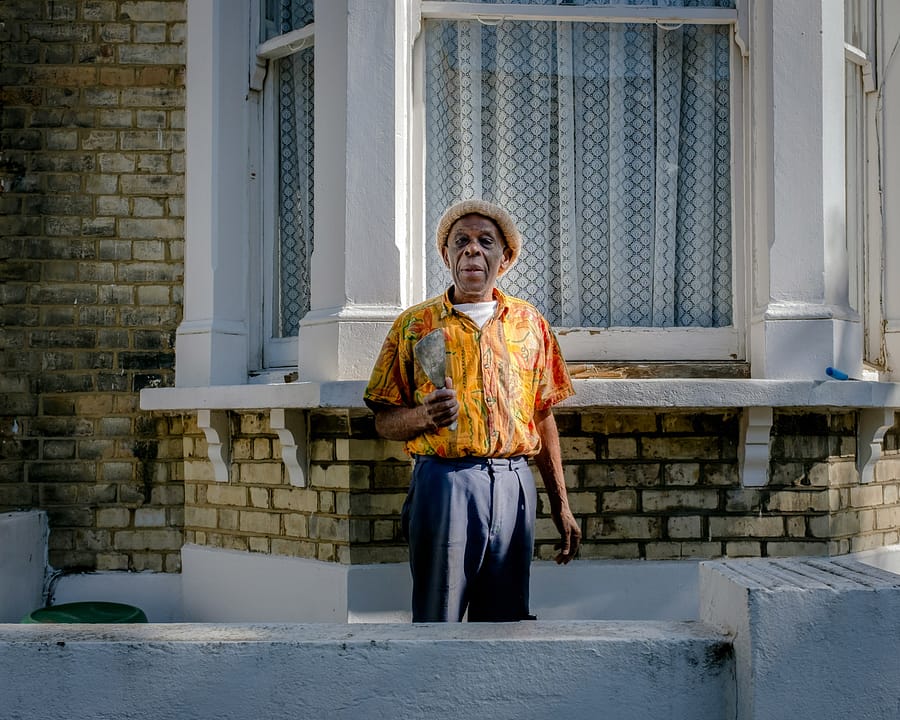
Hector, The British Elders // ©Steve Reeves
Photographer
Steve Reeves
The Story behind the Portrait
In our fast-moving and social media-driven world, there’s a small group of people quietly going about their business at a completely different pace to the rest of us. For me, these people appear to be from a bygone era and make up a collection of my street-portraits called The British Elders. They go out every day to buy the local paper, travel by bus everywhere, pay in cash and the men still wear a shirt and tie daily. Their gentle and slow routines feel so unmistakably British and, for me, there’s a sense of comfort in watching their traditions. Yet with that comfort also comes the knowledge that it is a way of life that will soon vanish forever.
In our youth-obsessed world, The British Elders are often dismissed as irrelevant with outdated, conservative views, yet in my experience, the exact opposite is true. Those I have interviewed have often proved to be much more open-minded and liberal than I ever would have imagined. Some of them knew WWII and all of them knew the poverty that followed. They’ve experienced the threat of fascism and communism and because of this, they cherish freedom and individualism, the chance for people to be just who they want to be regardless of race or gender. I’m hoping that in a tiny way, my work and accompanying interviews shine a light on this forgotten section of our society. In many countries, elders are respected but in Britain, they can often seem ignored or even derided. These are the very people that I seek out with my camera. People such as Hector.
I was walking my dog when I saw Hector decorating the windows of his Victorian terrace. Hector is 73 and originally from Jamaica but has lived in Battersea, South London, for most of his adult life. Before retiring, he worked for British Rail. He told me that after years of renting a place to live, he finally managed to save enough for a mortgage. In his portrait, he is shown standing proudly in front of this house he has lived in for the past 30 years.
He told me that he always does the decorating himself, ‘I like to start early before the sun gets too hot – I take my time and enjoy the work.’ He recounted how his road had changed quite a bit over the years. He used to have many West-Indian families as neighbours, but Hector, his wife, and his grown-up daughter are now one of the last. ‘My friends all sold up years ago when the house prices started going up – but we didn’t want to leave.’
In retrospect, Hector’s decision to stay was quite a good one because the prices have continued to rise, and his house is currently worth around £1.7m. Hector’s not selling up any time soon though,
‘It’s my home, and it’s got my soul in it,’ he said with a smile then turned back to working on his windows.
They’ve experienced the threat of fascism and communism and because of this, they cherish freedom and individualism, the chance for people to be just who they want to be regardless of race or gender.
Bio
Steve Reeves is a documentary and portrait photographer. His work tends to concentrate on the diverse community around his home in South London. His street portraits and accompanying interviews celebrate the spirit and humanity of the strangers that he photographs. Steve’s photography is spontaneous, taken as soon as he meets the subject, with the accompanying interviews written from brief notes taken while talking to and photographing the subject.
Website and Social
www.stevereevesphotographer.com
